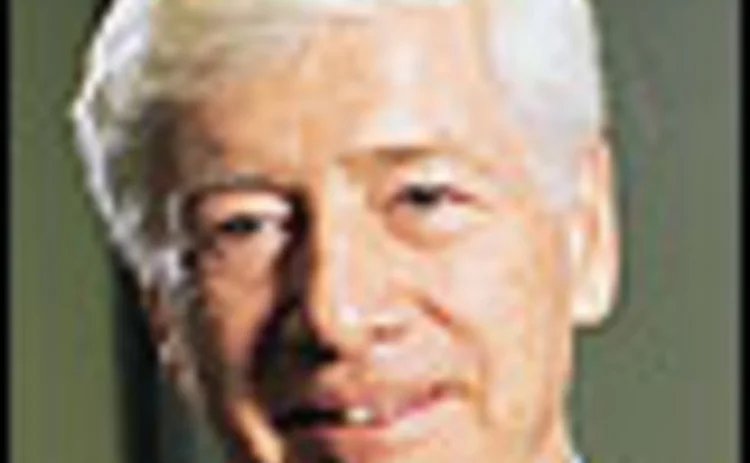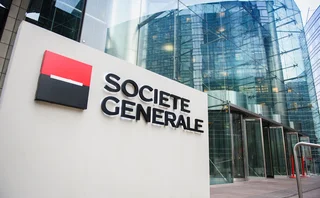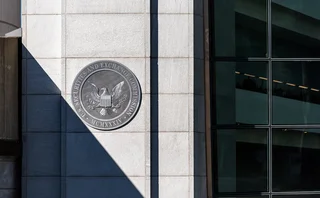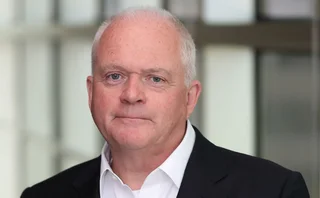
Morgan Joseph
Fred Joseph, managing director, and John Sorte, president and chief executive officer, talk to Philip Moore about what sets investment bank Morgan Joseph apart from its rivals

It shouldn’t come as much of a surprise to learn that in his younger days Fred Joseph was an amateur boxer. He has, after all, taken his fair share of punches, and none more so than in 1989 and 1990 when Drexel Burnham Lambert, the firm at which he was then chief executive, suffered its famous – or rather infamous – collapse. The son of a Boston cab driver, Joseph graduated from Harvard Business School in 1963. He was in his 50s when the Drexel bubble burst; and although the Financial Times described him as “trim and fit and rakishly charming” in December 1988, by 1990 the same paper was observing that the trials and tribulations at Drexel had visibly aged Joseph.
Not that the upheavals at Drexel succeeded in derailing a career in the securities industry that began 40 years ago, when Joseph was recruited to the corporate finance department of EF Hutton by John Shad, later chairman of the SEC and US ambassador to the Netherlands. As the Washington Post observed in 1989, Shad and Joseph “made their mark at Hutton because they were willing to take risks, to step outside the boundaries of traditional investment banking. They concentrated on advising mid-sized, growing companies whose credit was not as sound and whose banking needs were not as predictable as the big blue chip corporations.”
That, in the view of the Post, made Shad and Joseph “upstarts, fighters, climbers” and although it is many years since Joseph last stepped into the boxing ring, he has lost none of the pugilistic spirit that you need to prosper on Wall Street for four decades. Nor has he lost any of his energy: when US Credit caught up with him, Joseph had just returned from a bow-and-arrow hunting expedition in the mountains of New Mexico.
Give his passion for hunting, what possesses a banker now well into his 60s to continue to ply his trade on Wall Street when many of his former colleagues are enjoying a comfortable retirement? The answer, he says, is simple enough. “In the year after the Drexel bankruptcy when I was still a consultant to the firm, I had a lot of spare time to develop my hobbies,” he explains. “In that year I spent 92 days bow-and-arrow hunting, and during that time I figured out that I enjoy doing deals every day even more than I enjoy hunting. So when I was recently asked what my retirement plans were, I replied that I intend to carry on doing deals as long as my brain will let me.”
Today, Joseph works on those deals in his capacity as managing director and co-head of investment banking at the New York office of Morgan Joseph & Co, the firm originally founded 20 years ago by John A Morgan. Joseph arrived there in May 2001, following spells as chairman of the investment banking consulting firm, Clovebrook Capital (from 1994 until 1998) and as a senior advisor and managing director of ING Barings. In 2001, following an unsuccessful bid to buy the US operations of ING Barings’ corporate finance division, Joseph teamed up with a number of others to acquire Morgan Lewis Githens & Ahn, which in 2002 was renamed Morgan Joseph & Co.
The rationale behind that acquisition was straightforward. According to Joseph, 15 to 18 years ago there was a wide range of firms providing investment banking services to middle-market companies. The names include the likes of DLJ, Wertheim, PaineWebber, Kidder Peabody, Dean Witter, and EF Hutton – not to mention, of course, Drexel Burnham Lambert. “They’ve all gone,” says Joseph. “Today, you can name the firms that are doing national, full-service mid-market investment banking on one hand, and yet the size of the market is probably twice as big as it was when all those firms were active.”
Hence the belief that there was plenty of room for a firm offering services ranging from M&A advice to high-yield bond origination and distribution for companies with a typical enterprise value of between $40 million and $500 million. In the credit market, the Morgan Joseph franchise was strengthened last December when it recruited a 13-strong team to form a high-yield and convertible bond sales, research, and trading department.
Friends reunited
Two of that team’s leaders, Matthew Stedman and James Tumulty, were once colleagues of Joseph’s at Drexel. So too were a number of other senior professionals at Morgan Joseph, such as John F Sorte, president and chief executive officer and a colleague and friend of Joseph’s since 1972, when Sorte graduated from Harvard Business School. “Fred hired me in 1972 when he was first vice president in charge of corporate finance recruitment at Shearson Hammill,” Sorte says. “He left to take over the corporate finance department at Drexel in 1974 and spent the next six years trying to convince me to join him there, and I finally succumbed in 1980.”
Following the break-up of Drexel, Sorte became chief executive of the reorganized firm that emerged from the rubble, New Street Capital. He went on to co-found the private equity firm New Street Advisors in 1994, where he remained until June 2001, when he “jumped at the opportunity” of rekindling his professional relationship with Joseph and becoming CEO of Morgan Joseph. At the same time, he asked two other survivors of the Drexel shipwreck to join him – Denis Galgano, who had become chief administrative officer in the corporate finance department in 1989, and Mary Lou Malanoski, one-time managing director of M&A and chair of the corporate finance underwriting commitment committee at Drexel.
The number of Drexel alumni at Morgan Joseph today raises two very obvious questions. The first is that the firm is hardly one that is spearheaded by spring chickens of the investment banking industry. As Sorte says, of its 55 investment bankers, an unusually high proportion – 27 – is accounted for by senior professionals, with its managing directors typically averaging “well over 20 years’ experience in the business”.
Naturally enough, Sorte and Joseph insist that the seniority of the Morgan Joseph staff gives the firm a competitive advantage in a number of respects. “I don’t think any other firm has put this much experience and talent to work in the mid-market sector over the last two decades,” says Joseph. “The fact that half of the bankers in our corporate finance department are managing directors means that the senior people have to roll up their sleeves and get involved in every aspect of a transaction, which probably isn’t the case at the bulge bracket firms.”
The seniority of the Morgan Joseph corporate financiers relative to those at some of the other, larger Street firms is probably appropriate considering its corporate client base. As Joseph says, its pool of customers is, for the most part, representative of the old rather than the new economy. “Although most of the senior guys here are generalists almost by necessity, we tend not to emphasize industries where there are boutiques with greater depth and breadth than we have,” he says, which explains why high-technology and biotechnology are two sectors toward the bottom of the Morgan Joseph priority list.
Focusing on more traditional industries, says Joseph, calls for a different kind of investment banker to the one that may go knocking on the doors of high-tech companies or larger investment-grade corporates. “If you’re Goldman Sachs and you’re dealing with General Motors, say, you can probably send out a smart 32-year-old who’s just graduated from business school and will relate very well with the treasury department,” says Joseph. “But if you’re dealing with a 60-year-old entrepreneur who’s built up his business from scratch, you’re better off with a grown-up investment banker.”
Reputations
So what about the second implication of the re-emergence of a good chunk of the old Drexel team clutching new business cards? How much Drexel deserved the reputation it earned is open to debate, but the name became more or less synonymous with all that was wrong with American corporate and investment banking culture in the late 1980s. So doesn’t the arrival of former Drexel bankers on companies’ doorsteps conjure up all the wrong memories and images – of greed, of pushing the envelope, of junk?
“Not at all,” is Joseph’s blunt answer. “That was an image that may have interested the press. To a corporate executive running a mid-market company and needing to raise money, it doesn’t matter one iota. If anything, he probably draws comfort from being sure that we know what we’re talking about.”
Nor, apparently, has the baggage of the Drexel history been much of a concern among partners on the Street. “It just hasn’t been an issue,” says Joseph. “Over the last year we’ve co-managed transactions with firms like Morgan Stanley, Lehman, UBS, and Merrill Lynch, and we haven’t had a single question about that ancient history. Besides, of the high-yield team only three were at Drexel – we also have people who were at ING, Lehman, Salomon Smith Barney and elsewhere.”
In fairness to Joseph, there was plenty about the Drexel ethos that probably did not deserve to be consigned to the trash can of history along with the firm’s name. Its entrepreneurial culture, for example. As the Financial Times remarked at the time of the Drexel collapse, “large performance-related bonuses” were a “major plank of Frederick Joseph’s management strategy” and he has lost none of his conviction that individuals should be rewarded on the basis of their contribution. “Performance-related pay has now been adopted by virtually all securities firms,” he says, “but I think we were somewhat innovative in establishing it in the early days at Drexel.”
Another innovation in those early days, which has also been replicated at Morgan Joseph, was to offer employees part of their annual bonus in the form of stock. “At Drexel I felt it was very important to align everybody’s interests with those of the firm,” says Joseph, recalling that in the first year of their introduction bonuses including the company’s stock were nicknamed ‘Freddies’ by some of the smarter whippersnappers at Drexel – including a young John Sorte.
Another positive element of the old Drexel ethos that survives at Morgan Joseph today is the belief that funding for smaller, non-investment grade companies is a precious resource for the broader economy, but one that may be becoming increasingly elusive as the investment banking industry gravitates more and more toward the twin holy grails of bulge bracket status and global presence.
“Back in the 1960s, 70s, and 80s you had insurance companies taking up direct placements of mid-market sized transactions,” says Joseph, “and a number would compete for $25 million of 10- or 20-year loans. Today there’s almost no market for that kind of paper unless it comes with an equity kicker attached.” And selling equity, he adds, can often remain prohibitively expensive for smaller companies, leaving them with a narrower range of funding options than their credit quality or management strength warrants.
“What we’re trying to do is differentiate ourselves in terms of the financing alternatives we can provide to mid-market companies,” explains Joseph, “and part of that will involve arranging some of the more difficult financings. For example, virtually all of the major firms will tell you that it’s impossible to do a public high-yield offering below a minimum of $125 million or $150 million. We believe very strongly that we can do highly successful deals down to as little as $60 million.” Being able to organize smaller transactions is a by-product of lower overheads, not being bound by ludicrously ambitious and demanding minimum fee requirements, and striking up a dialogue with more specialized investors than the giant institutions targeted by the bulge bracket firms.
“Where we see the most demand for these transactions is from the private hedge funds,” says Sorte. “There are numerous funds of this kind that have been set up over the last decade that are very interested in the sort of harder-to-understand, higher-yielding transactions that we are looking at for smaller companies. And those funds are willing to buy 10% of a $60 million transaction, which a Fidelity or a Putnam couldn’t afford to do. So demand for high yield is definitely there.”
That demand, as well as supply, can only rise as the broader macroeconomy continues to recover, say Joseph and Sorte, and those rising volumes are already starting to feed through into an increasingly busy deal pipeline. “Our pipeline is now about 200% as large as it was this time last year,” says Sorte. “Part of that reflects the fact that we’re in a much improved economic environment, but part of it also shows that we are becoming much better established and recognized in the marketplace.”
There is something else from the days of Drexel that survives today at Morgan Joseph. That is a sense of humor from an approachable and affable group of people who don’t take life, or a somewhat checkered history, unnecessarily seriously. At the height of the junk bond boom of the 1980s, one of the more unmissable annual events for bankers, investors, and even politicians was the so-called Predators Ball. Hosted each year by Drexel at the Beverly Hills Hotel in Los Angeles, this annual event provided Connie Bruck with the title of her book on the “Junk Bond Raiders”.
Today, Morgan Joseph also organizes events for its clients. But as Joseph remarks with an impish smile, the event giving investors a chance to hear presentations from smaller and medium-sized companies in the steel sector this month took place on a cold December day in New York rather than on a balmy June day in California. Its name? The Steel Creditors Ball.
Photographs were taken by Darren Modricker at Morgan Joseph in New York.Only users who have a paid subscription or are part of a corporate subscription are able to print or copy content.
To access these options, along with all other subscription benefits, please contact info@risk.net or view our subscription options here: http://subscriptions.risk.net/subscribe
You are currently unable to print this content. Please contact info@risk.net to find out more.
You are currently unable to copy this content. Please contact info@risk.net to find out more.
Copyright Infopro Digital Limited. All rights reserved.
As outlined in our terms and conditions, https://www.infopro-digital.com/terms-and-conditions/subscriptions/ (point 2.4), printing is limited to a single copy.
If you would like to purchase additional rights please email info@risk.net
Copyright Infopro Digital Limited. All rights reserved.
You may share this content using our article tools. As outlined in our terms and conditions, https://www.infopro-digital.com/terms-and-conditions/subscriptions/ (clause 2.4), an Authorised User may only make one copy of the materials for their own personal use. You must also comply with the restrictions in clause 2.5.
If you would like to purchase additional rights please email info@risk.net
More on People
SocGen’s head of US Treasury clearing preparations to depart
Bank’s head of product for FX and fixed income prime brokerage for the Americas set to leave later this month
People: You’re fired! US agency rejig, new CROs at ING, StanChart, and more
Latest job changes across the industry
SocGen’s PB clearing head departs for SwapAgent role
Jamie Gavin takes external consulting role for LSEG’s non-cleared swaps platform
Robertson leaves Barclays’ prime services in New York
Head of prime derivatives services unit departs after seven years with the bank for Carbon Point
Citadel Securities hires former Eisler CRO
Pregnell joins market-maker after demise of hedge fund
People: Fishwick hands over BlackRock CRO role, Citi expands Asia FX team, and more
Latest job changes across the industry
Nomura shuffles risk methodology team
Epperlein takes advisory role six months after Japanese bank’s FRTB IMA go-live
Andy Ross leaves StanChart
CurveGlobal veteran confirms his departure as bank’s global head of prime brokerage







